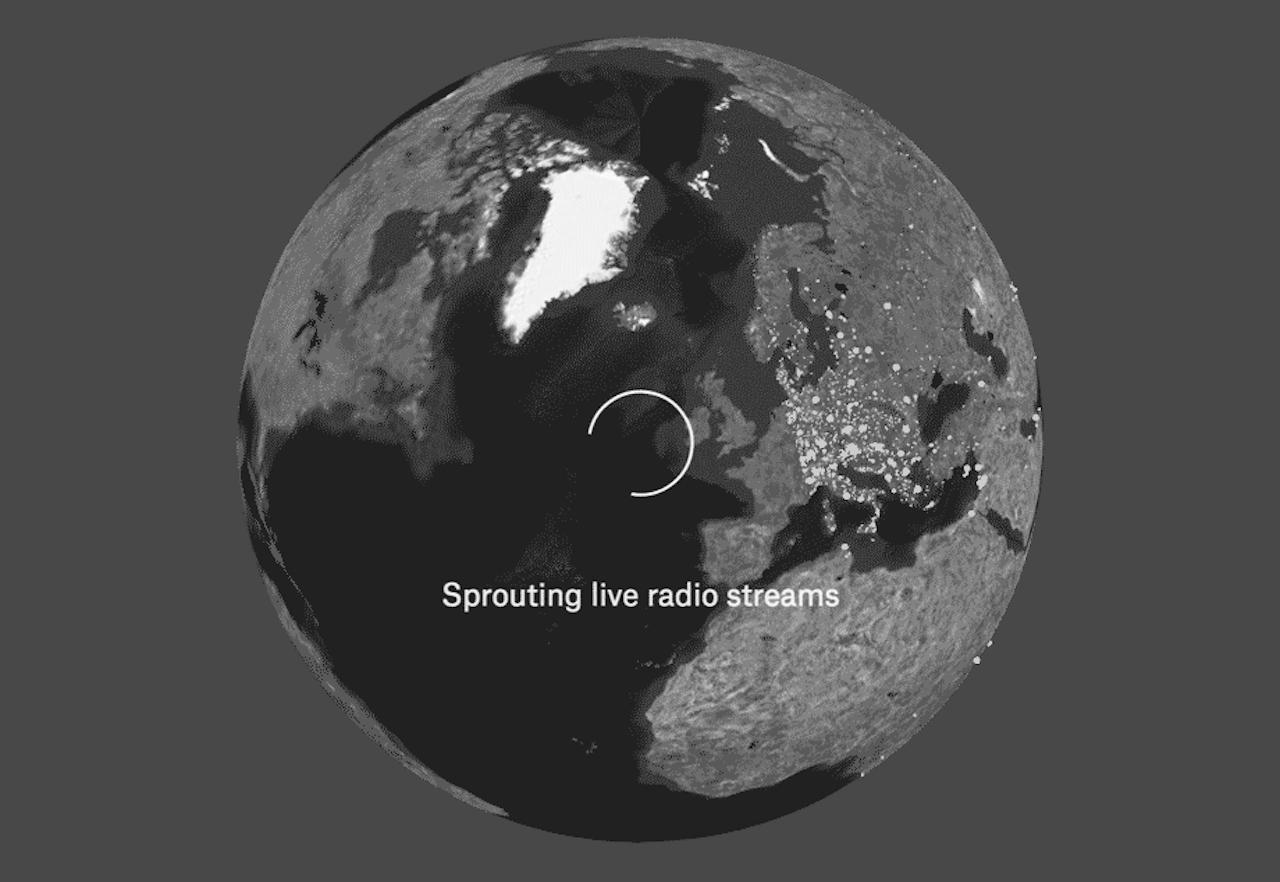If the goal of the internet was to create a connected community of global citizens, its shining achievement might have been the moment WREK in Atlanta streamed the first radio show over the web in 1993. The communities that grew around internet radio would come to reflect the borderless nature of the online world. And now, thanks to the near-ubiquity of internet access and the increased capabilities of the computers we all carry around in our pockets (you can start your own station with a mobile app), anyone from anywhere can broadcast into your living room.
The new website Radio Garden is as tangible a representation of this global community as you can get. The site, which launched this week, lets users to tune in to thousands of online radio streams from all over the world (except stations in parts of China, who stream using a file format incompatible with most browsers) by hovering over a location on a map. The site is a collaboration between the researchers on the Transnational Radio Encounters project in Germany, and the Amsterdam-based design firms Moniker and Studio Puckey. Over the phone, Studio Puckey’s Jonathan Puckey told me, "Online radio is this ancient technology in a way. So we decided to use it as a sort of navigational tool."
Radio Garden works by crawling the web for radio streams coming from every possible location on Earth. With this data, Studio Puckey overlaid each station with its corresponding geographic location. There are no city names or borders on the map; exploring the world on the site is an act of discovery not unlike turning the dial on an actual radio (the site makes sure to include the sound of static as you filter through stations). Move your cursor bit to the east and you’re listening to a station in Serbia, a few inches south and you find yourself in Turkey. Every location provides its own distinct, sometimes surprising sound.
"It was a big conceptual decision to sort of strip away all city names and country names," Puckey said. “I think it presents a nice challenge for people to find places on the globe. It also challenges the layer of information that we add on to the globe.
Indeed, Radio Garden presents the most optimistic promise of a connected world, and makes it intuitive. When I called Puckey, he told me he was up all night the night before monitoring server activity because users in Brazil and Saudi Arabia had just caught on to the site. In the first week alone, Puckey says, more than two million people visited the page. And users seem to enjoy it. On Studio Puckey’s Twitter account, they note the surge in popularity of a Welsh radio station among listeners in Brazil thanks to the site.
"It started from Europe and the United States but right now we have the most visitors in places like Brazil and India as well as Saudi Arabia, Jordan and UAE," Puckey said. “It’s really interesting to see and translate tweets in Arabic to see what they are saying about it. So far it’s all positive.”
Puckey said he’s already getting hundreds of requests from stations around the world looking to get added to the site (naturally, there are blind spots to Radio Garden’s sweep). He recently added a station in Aleppo at the request of a fan.
It's no secret that our most popular modes of connecting with one and other online are broken. The consumerist functions embedded deep in social media have created an incentive structure that obscures the very purpose of online communication. Radio Garden, which also features a wealth of illuminating research about the cutural exchange possible through radio, is an interesing, perhaps even familiar, viral internet project, but something about being able to scour the earth's radio in real time feels essential — like the internet's crazy, beautiful dream might be hidden underneath all the noise.
